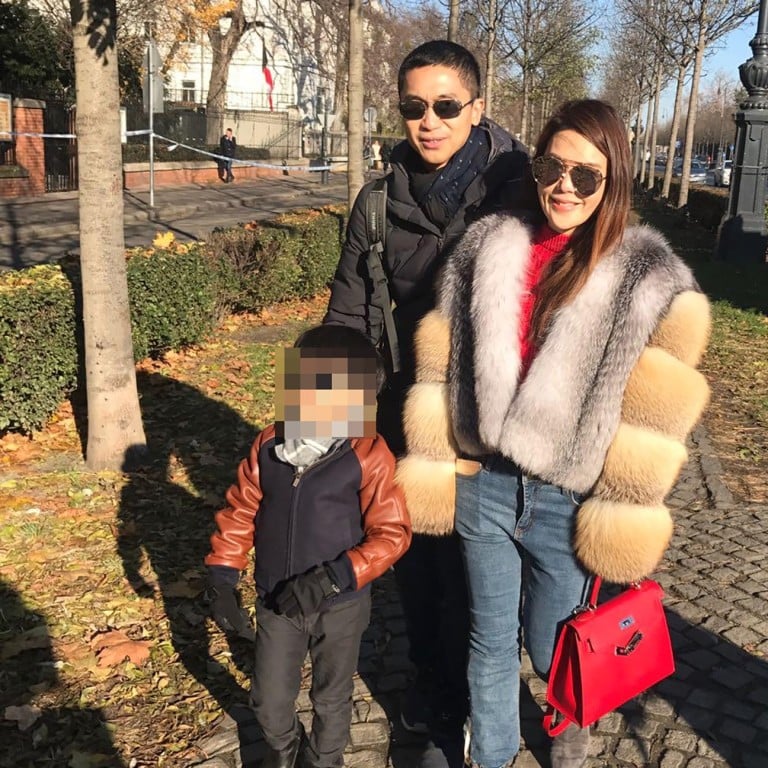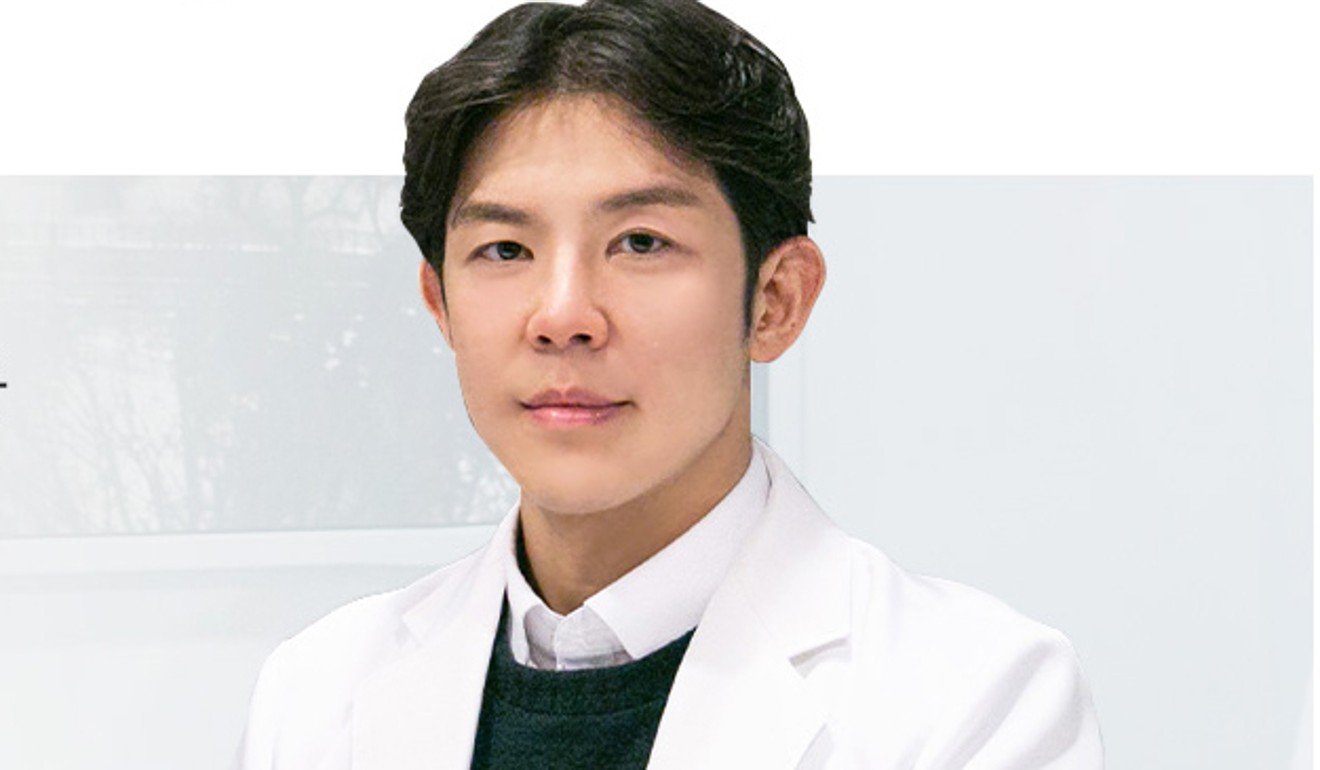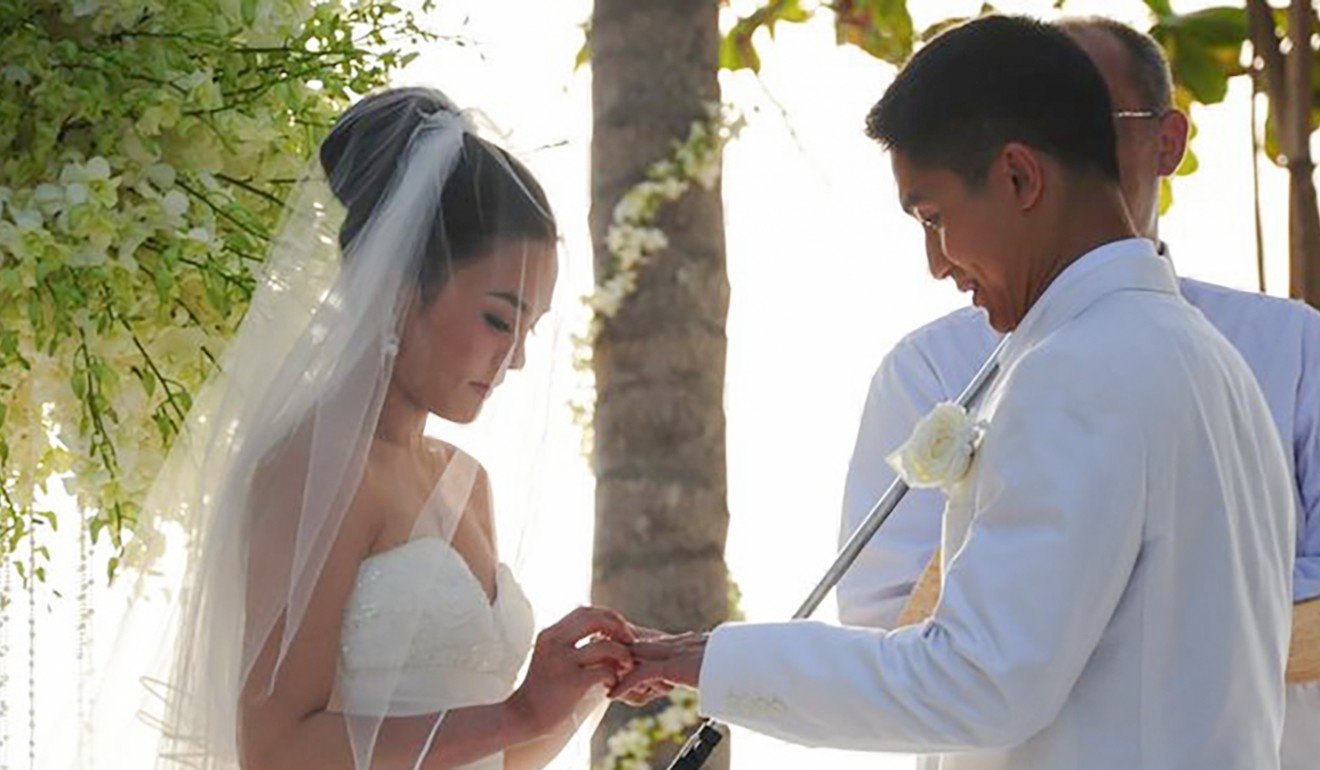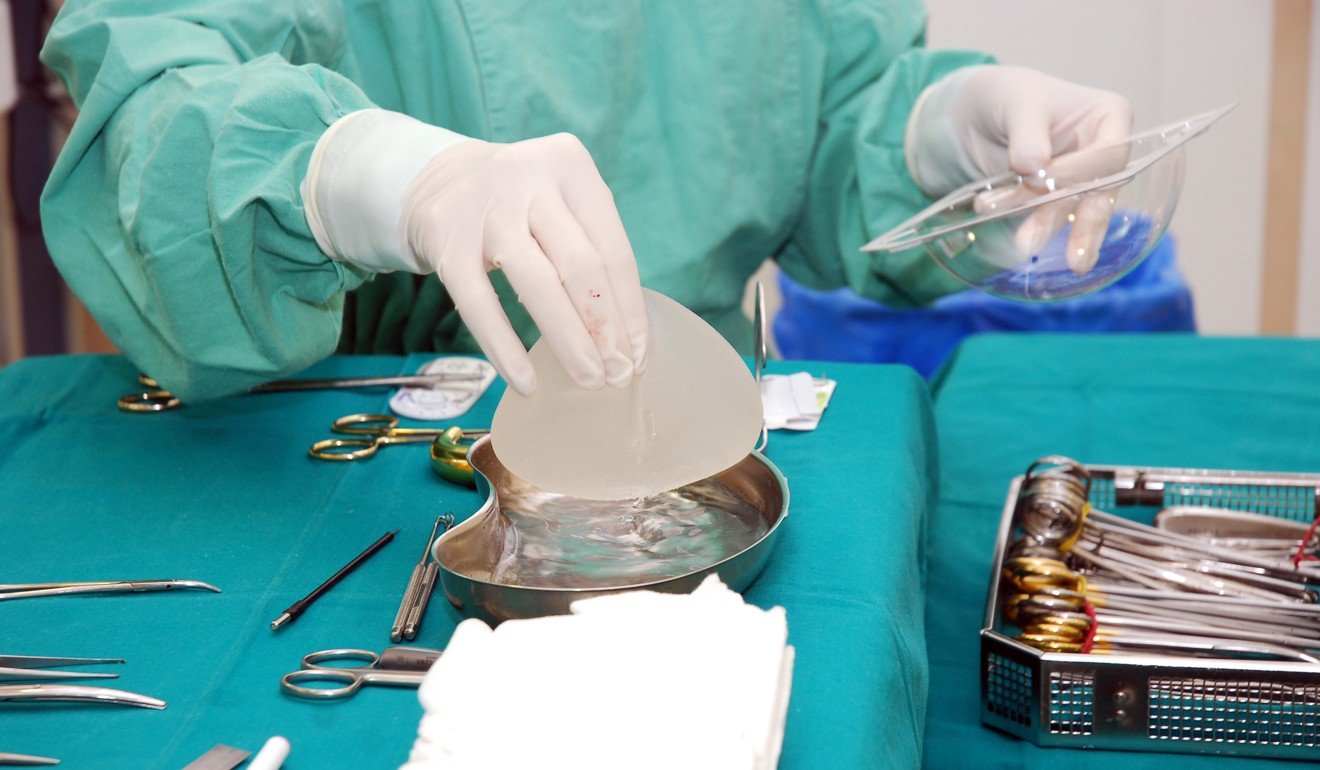
Exclusive | Husband to sue South Korean plastic surgery clinic over death of Hong Kong textile fortune heiress Bonnie Evita Law
- The 34-year-old woman was the granddaughter of the tycoon Law Ting-pong, founder of the Bossini clothing brand
- The involved clinic, two doctors and a nurse are being accused of alleged manslaughter and forging pre-surgery documents
A Hong Kong tycoon family is suing a South Korean plastic surgery clinic over the death of one of its family members during liposuction and breast augmentation procedures a month ago in Seoul’s upscale Gangnam district.
The plastic surgery was part of a birthday celebration for Bonnie Evita Law, a granddaughter of late textile tycoon Law Ting-pong who founded the Bossini clothing chain, but the 34-year-old woman fell into a coma at the clinic and was transferred to a hospital where she was pronounced dead.
She was one of the three children of Raymond Law Ka-kui, the late tycoon’s youngest son and a property investor who is involved in some of the city’s major development projects. She is survived by a brother and a sister, Queenie Rosita Law, who was the victim of a high-profile kidnapping in 2015.

The widower, Danny Chi, said he would file a lawsuit in a South Korean court this week on behalf of the family, for unspecified damages against the Ollim Plastic Surgery dermatological clinic, its two doctors and a nurse for alleged manslaughter and forging pre-surgery documents. He had earlier said the case would be brought in a Hong Kong court.
Chi, who was married for 10 years to Law, with whom he has a seven-year-old son, is seeking damages including for the loss of one-third of his father-in-law’s estate upon his wife’s death and substantial annual income received through her.
“Her death was unfortunate, unnecessary and unlawful. It was solely as a result of their gross negligence, greed and incompetence,” Chi told the Post.
“Nothing can bring my wife back. It’s to raise awareness for others. I don’t want the same tragedy to happen for other families.”
While Seoul police have launched a criminal investigation into Law’s death, the website of the clinic indicated it was still open for business and was accepting appointments for Kim Sung-il, the main surgeon involved.

The Post reached out to the clinic, the Chinese-speaking sales consultant who referred Law there, and the Korean National Police Agency but could not get any response.
Chi said his father-in-law had received a WeChat message from Kim, begging for forgiveness.
According to the writ for launching a personal injury action, obtained by the Post, the victim was planning to celebrate her 35th birthday when she became acquainted with sales consultant Shim Bok-hwa, who was said to have eight years of experiences in the industry and invited her through WeChat to fly over to the clinic for plastic surgery.
Law had a facelift on January 21, but died of complications on January 28 after liposuction procedures on both arms and upper pelvis, translocation of the fat removed to the breasts, and Botox on both calves.
The surgery was performed by Kim, who claimed to have 10 years of experience as a medical practitioner, and was assisted by surgeon Jung Tae-gwang and nurse Park Mi-soo.
No anaesthetists were present, and “a machine was used to administer propofol, together with a strong cocktail of sedatives” by Jung, according to statements provided to South Korean police.

As Law developed intense pain and kept “twitching and moving during the surgeries”, Kim instructed Jung to inject a mixture of other sedatives, ketamine and midazolam, twice on the patient, the writ said.
But when Kim started to remove fat from the patient’s left arm, her oxygen saturation level dropped to nearly 80 per cent, her face turned pale and her lips went blue.
By the time an ambulance arrived, she was bleeding from her mouth and nose during resuscitation attempts, and was declared dead one hour later at Catholic University of Korea’s Eunpyeong St Mary’s Hospital.
Law’s body was cremated in South Korea on February 13. There was no proper funeral in Hong Kong because of the coronavirus outbreak, but family members held a memorial online on her birthday.
Family members were expecting a police postmortem report to be ready next month at the earliest. They blamed clinic staff for not putting Law through any pre-surgery testing for possible allergic reactions to anaesthetic drugs, or offering her the option of full-body anaesthesia to be administered by a licensed specialist.

The family also alleged that certain pre-surgery documents about possible risks were not signed by the victim but forged by the clinic after her death.
Dr Ho Chiu-ming, president of the Hong Kong Society of Plastic, Reconstructive and Aesthetic Surgeons, suspected Law’s death could be related to the anaesthetic procedures, and stressed the need for dedicated, registered personnel to do the job.
“Wrong or excessive sedative drugs might cause the obstruction of the airways. It can be very dangerous,” he said. “They have an important role to actively monitor the response of the patients.”
Ho quoted industry reports that only one in 10 plastic surgery practitioners in South Korea were fully trained, and many were merely general practitioners relying on hands-on experience.
‘I feared they would kill me’: Bossini heiress Queenie Law describes kidnapping
Ho warned Hong Kong patients to evaluate the reputation and experience of overseas clinics carefully before committing to any surgical procedure.
According to the clinic’s website, Kim had been trained at Gangnam Severance Hospital and was a member of the Korean Society for Aesthetic Plastic Surgery.
The clinic is one of about 500 concentrated in the wealthy Gangnam district in southern Seoul, a Mecca for medical tourism in South Korea.

